Commonly Confused Words in the English Language
Commonly confused words and phrases in the English language refer to words or phrases that are often mistaken for one another because they are similar in spelling, pronunciation, or meaning.
The English language is a complex and nuanced system of communication, and as such, it is not uncommon for speakers and writers to become confused by certain words and phrases.
This is true for all speakers of English but can be especially difficult for learners of English as an additional language.
Some familiar examples include "affect" and "effect," "loose" and "lose," and "accept" and "except."
These types of mistakes can occur due to a lack of understanding of the words' definitions, or because the words are used in similar contexts.
They can also occur as a result of differences in American and British English or because the words are homonyms, meaning that they have the same pronunciation or spelling but different meanings.
It's important to be aware of commonly confused words and phrases to improve your writing and speaking skills.
On this page we list hundreds of commonly confused words and terms in the English language.
Commonly Confused Words and Phrases in English
'Affect' or 'Effect'?

Affect and effect are two commonly confused words in the English language. While they may seem similar in meaning, they are actually used in different ways.
Unders...
'Apart' or 'A Part'?

‘A part’ is a noun phrase that refers to a specific portion or component of something. For example, "A part of the cake was eaten" means that a specific portion of the cake has b...
'A While' or 'Awhile'?

Awhile is an adverb that means "for a short time." It is used to indicate that an action or event occurred or will occur for a short period of time. Awhile is often used in the phrase "for awhile,...
'Award' or 'Reward'?

"Award" and "reward" are two words that are often used to describe something that is given in recognition of an achievement or as a result of good behavior. However, they have slightly different c...
'Among' or 'Amongst'?

Both "among" and "amongst" are prepositions that are used to indicate that someone or something is a part of a group or is surrounded by other people or things.
<...
'Alright' or 'All Right'?

Alright and all right are two words that are often used interchangeably, but they do have slightly different meanings.
Alright is a colloquial or informal version of "all right." It...
'Any Time' or 'Anytime'?

Any time and anytime are two phrases that are often used interchangeably, but they do have slightly different meanings.
Any time means "at any point in time," or ...
'Aid' or 'Aide'?
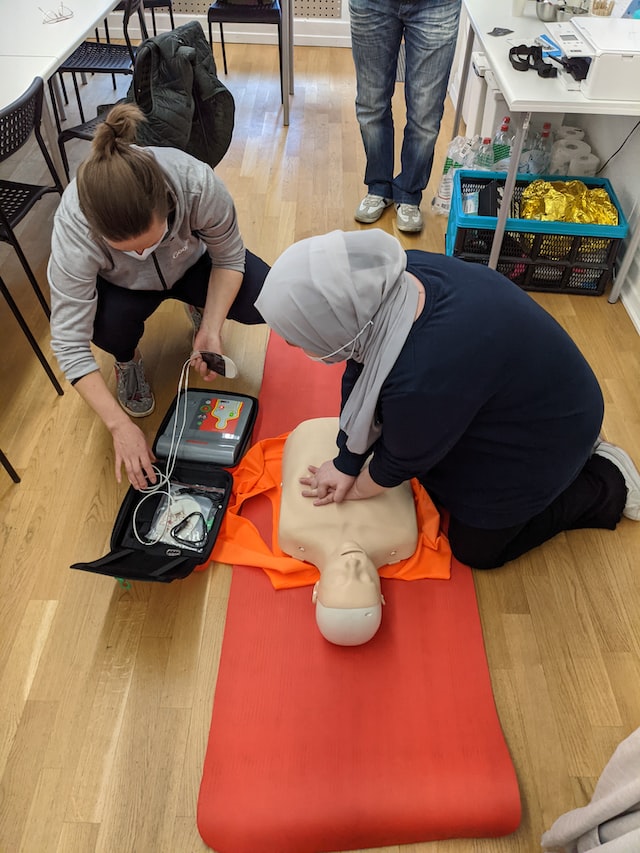
"Aid" is a noun that refers to help or assistance provided to someone. It can be used to describe any kind of help, such as financial aid, medical aid, or emotional support.
...'Altogether' or 'All Together'?

Altogether and all together are often used interchangeably, but they do have slightly different meanings.
Altogether means "completely" or "totally." It can be used to describe a si...
'Analog' or 'Analogue'?

Analog and analogue are alternative spellings of the same word. The word analog refers to something that is similar or comparable to something else, or that operates using a continuous range of va...
'Aisle' or 'Isle'?

"Aisle" and "isle" are two words that are often confused because they are pronounced the same way, but they have different meanings and spellings.
An "aisle" is a long, narrow passa...
'Angel' or 'Angle'?

"Angel" and "angle" are two words that are often confused because they have similar spellings but have different meanings and pronunciations.
An "angel" is a celestial being, often ...
'Altar' or 'Alter'?

"Alter" and "altar" are two words that are often confused because they are homonyms (they are pronounced the same way) but they have different meanings and spellings.
"Alter" is a v...
'Avenge' or 'Revenge'?

"Avenge" and "revenge" are two words that are often used to describe the act of seeking retribution or taking action against someone or something that has wronged or harmed someone. However, they ...
'Attain' or 'Obtain'?

'Attain' and 'obtain' are both verbs that mean to get or acquire something, but they are often used in slightly different contexts.
'Attain' generally implies ...
'Ax' or 'Axe'?

'Ax' and 'axe' are two different spellings of the same word, which refers to a tool with a sharp edge used for chopping wood or other materials. Both spellings are used, and they are generally int...
'Artefact' or 'Artifact'?

Both "artefact" and "artifact" are acceptable spellings of the same word. "Artefact" is the spelling commonly used in British English, while "artifact" is the spelling used in American English.
'Any More' or 'Anymore'?

'Anymore' and 'any more' are two different phrases with distinct meanings.
'Anymore' is an adverb that means 'nowadays' or 'currently.' It is typically used in ne...
'Adapter' or 'Adaptor'?

The words "adaptor" and "adapter" are both correct spellings and can be used interchangeably. They refer to a device that allows two different things to be connected or used together, usually by c...
'Allude' or 'Elude'?

"Allude" and "elude" are related, but they have slightly different meanings.
"Allude" means to suggest or hint at something indirectly, without stating it directly. For example, you...
'Allusion' or 'Illusion'?

The words "allusion" and "illusion" are related, but they have slightly different meanings.
"Allusion" refers to an indirect reference or suggestion. For example, you might say "I'm...
'All Ready' or 'Already'?

The phrases “all ready” and “already” are homonyms, meaning they sound the same. Their meanings however are very different.
"All ready" means that ever...
'Amend' or 'Emend'?

"Emend" and "amend" are both verbs that refer to making changes or corrections to something, but they have slightly different meanings and uses.
"Emend" means to correct or improve ...
'Adapt' or 'Adopt'?

The words "adapt" and "adopt" have similar meanings but are used in slightly different contexts.
To adapt means to change or modify in order to fit a new situatio...
'Addicting' or 'Addictive'?

"Addicting" is an adjective that describes something that has the potential to cause addiction or to cause someone to become dependent on it. It is often used informally and is not considered stan...
'Amid' or 'Amidst'?

Amid and amidst are both prepositions that mean "in the midst of," or "surrounded by." They are often used to describe a situation in which something is happening or being done in the middle of a ...
'Adverse' or 'Averse'?

Adverse and averse are two words that are often confused because they sound similar, but they have different meanings.
Adverse means "unfavorable or harmful." It is often used to de...
'Acception' or 'Exception'?

Acception and exception are two words that are often confused because they sound similar, but only the word exception is used in modern English. The word acception is now obsolete and is no ...
'Absorbent' or 'Adsorbent'?

Adsorbent and absorbent are two words that are often confused because they sound similar, but they have different meanings.
Adsorbent refers to a substance that is able to adsorb, o...
'Absorb' or 'Adsorb'?

Absorb and adsorb are two words that are often confused because they are spelled similarly and have similar pronunciation. However, they have different meanings and uses.
Absorb mea...
'Alternately' or 'Alternatively'?

Alternately and alternatively are two words that are often used to describe things that happen or occur in a repeated or changing pattern.
Alternately means "by turns; one after the...
'Aloud' or 'Out Loud'?

Aloud and out loud are two words that are often used to describe the way in which something is spoken or expressed.
Aloud means "spoken or expressed in a way that...
'Argentine' or 'Argentinian'?

Argentine and Argentinian are two words that are often used to refer to Argentina, a country in South America.
Argentine is an adjective that means "of or relatin...
'Arise' or 'Arose'?

Arise and arose are two forms of the verb "arise," which means "to come into being or existence," or "to originate or start from a particular point."
Arise is the present tense form...
'You and I' or 'You and Me'?

"You and I" and "you and me" are two phrases that are often used to describe the relationship between two people. However, they are used in different contexts, and it is important to use the...
'At Least' or 'Atleast'?

The phrase “at least” is correctly written as two separate words. It is used to express a minimum requirement or amount of something necessary to accomplish a task.
In o...
'Athletic' or 'Athletics'?

Athletic and athletics are two words that are often confused because they sound similar, but they have different meanings.
Athletic refers to something that is re...
'Appartment' or 'Apartment'?

The correct spelling of the word is "apartment." "Appartment" is a misspelling of the word.
An apartment is a self-contained housing unit that is part of a larger...
'Alphabet' or 'Alphabets'?

The correct word to use depends on the context in which it is being used.
"Alphabet" refers to the set of letters that are used to write a language, such as the E...
'Accompanied By' or 'Accompanied With'?

"Accompanied by" and "accompanied with" are two phrases that are often used to indicate that something or someone is accompanied by something or someone else.
"Accompanied by" is th...
'Ma'am' or 'Mam'?

"Mam" and "ma'am" are two ways to address a woman in English. Both words are shortened versions of the word "madam," which is used to address a woman in a formal or polite way.
"Mam...
'Ate' or 'Eaten'?

"Eaten" and "ate" are two forms of the verb "eat." The form of the verb that is used depends on the tense in which it is being used.
"Eaten" is the past participl...
'Amoral' or 'Immoral'?

"Amoral" and "immoral" are two words that are often used to describe behavior or actions that are considered to be wrong or inappropriate. However, there is a difference between the two terms.
...'Afterward' or 'Afterwards'?

"Afterward" and "afterwards" are words that are used in the English language to describe events that occur later in time.
Despite the difference in their spelling, these two terms h...
'Anyone' or 'Any One'?

"Any one" and "anyone" are homonyms meaning they sound the same. They are both used to refer to either people or things but they are used in different contexts.
...'Ageing' or 'Aging'?

Both "ageing" and "aging" are correct spellings of the word that refers to the process of growing older or the state of being old.
However, "ageing" is more commonly used in British...
'Aloud' or 'Allowed'?

"Aloud" and "allowed" are two different words with distinct meanings.
"Aloud" is an adverb that means "out loud" or "in a voice that can be heard." For example, you might say "I rea...
'Ascent' or 'Assent'?

"Assent" and "ascent" are two different words with distinct meanings.
"Assent" is a noun that means agreement or consent. For example, you might say "I gave my assent to the proposa...
'A Historic' or 'An Historic'?

"An historic" and "a historic" are two different ways of referring to something that is important or significant in history. The choice between "an" and "a" depends on the sound that the word "his...
'Assume' or 'Presume'?

"Presume" and "assume" are two different words with similar meanings. Both words can be used to mean "to suppose or believe something to be true without having proof."
However, ther...
'Assent' or 'Consent'?

"Assent" and "consent" are two different words with similar meanings. Both words can be used to mean "agreement or approval," but there are some slight differences in the connotations and usage of...
'Ambiance' or 'Ambience'?

"Ambiance" and "ambience" are two different spellings of the same word, which refers to the atmosphere or mood of a place or situation. Both spellings are acceptable and are used in different part...
'Ability' or 'Capability'?

"Ability" and "capability" are two words that are often used to describe a person's skills or capabilities. However, they can have slightly different meanings.
"Ability" refers to a...
'Aesthetic' or 'Esthetic'?

"Aesthetic" and "esthetic" are two different spellings of the same word, which refers to the principles of art and beauty, or the appreciation of beauty. However, "aesthetic" is the more widely ac...
'Aeroplane' or 'Airplane'?

"Aeroplane" and "airplane" are two different spellings of the same word, which refers to a vehicle that is used for air travel. Both spellings are acceptable and are used in different parts of the...
-
"I took an airplane to visit my family in London."
'Art Work' or 'Artwork'?

Here are ten examples using the word "airplane":
'Antisocial' or 'Asocial'?

"Antisocial" and "asocial" are two different words that are often confused because they both describe behavior or personality traits that involve a lack of social interaction or interest in social...
'All Are' or 'All Is'?

"All is" and "all are" are two different phrases that are used to describe a group or collective.
The phrase "all is" is used when the subject of the sentence is singular, while the...
'Aside' or 'Beside'?

"Aside" and "beside" are two words that are often confused because they sound similar and have similar meanings. However, they are not interchangeable and have different uses.
"Asid...
'Amount Of' or 'Number Of'?

"Amount" and "number" are two phrases that are often used to describe the quantity of something. However, they are not interchangeable and have slightly different meanings.
"Amount"...
'Alone' or 'Lonely'?

"Alone" and "lonely" are two words that are often used to describe a person's social situation, but they have different meanings.
"Alone" means "by oneself, without anyone else pres...
'Awaiting' or 'Waiting'?

"Awaiting" and "waiting" are two words that are often used to describe the act of waiting for something or someone. However, they have slightly different connotations.
"Awaiting" is...
'Any Way' or 'Anyway'?

"Any way" and "anyway" are two phrases that are often used to express different ideas.
"Any way" is a two-word phrase that refers to any method or manner. It is used to describe any...
'Backward' or 'Backwards'?

Backward and backwards are two words that are often used interchangeably, however, they have slightly different usages in American and British English.
In both American and British ...
'Bale' or 'Bail'?

"Bail" and "bale" are two different words with different meanings.
"Bail" is a noun that refers to the temporary release of a suspect from jail, typically on the condition that a su...
'Bunny' or 'Rabbit'?

"Bunny" and "rabbit" are two words that refer to the same animal. "Rabbit" is the more common and formal term, while "bunny" is a more playful and informal term, often used when talking about youn...
'Bad Rap' or 'Bad Rep'?

"Bad rap" and "bad rep" are two phrases that refer to a negative reputation or image. Both phrases are often used to describe someone or something that is perceived as having a negative or undeser...
'Bare' or 'Bear'?

"Bare" and "bear" are two different words with different meanings.
"Bare" is an adjective that means naked or uncovered, without any covering or clothing.
It can also...
'Bare With Me' or 'Bear With Me'?

The phrase "bear with me" means "please be patient with me" or "please endure something with me". It is used to ask someone to be patient or understanding while something is happening or being don...
'Base' or 'Bass'?
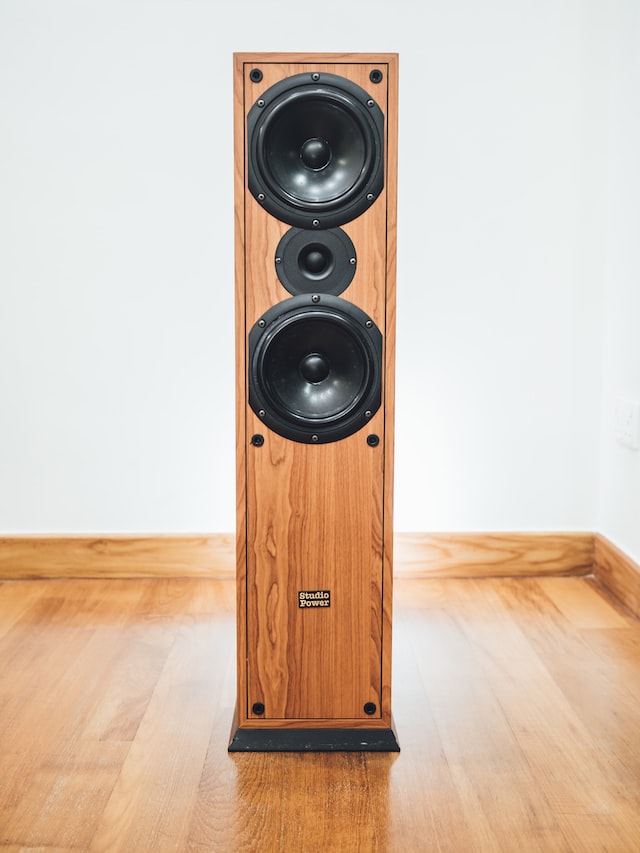
Bass and base are two words that are often confused because they are pronounced similarly and have related meanings. However, they have different spelling and different uses.
...'Bath' or 'Bathe'?

Bath and bathe are two words that are often confused because they are pronounced similarly and have related meanings. However, they have different spelling and different uses.
Bath ...
'Bedpost' or 'Bed Post'?

Bed post and bedpost are two phrases that refer to the same thing: a vertical support that holds up a bed. The main differe...
'Behaviour' or 'Behavior'?

Behaviour and behavior are two spellings of the same word. Both spellings are correct and commonly used, but the spelling "behavior" is more common in American English, while the spelling "behavio...
'Began' or 'Begun'?

Begun and began are two forms of the same verb: "begin". Begun is the past participle form of "begin", while began is the simple past tense form of "begin".
The v...
'Belief' or 'Believe'?

Belief and believe are two words that are often confused because they are related in meaning. However, they have different spelling and different uses.
Belief is a noun that refers ...
'Bellow' or 'Below'?

Bellow and below are two words that are often confused because they are pronounced similarly and have related meanings. However, they have different spelling and different uses.
Bel...
'Benefitted' or 'Benefited'?

Benefitted and benefited are two forms of the verb "benefit", which means to receive a good or an advantage from something or someone.
Both have exactly the same meaning and are sim...
'Back Yard' or 'Backyard'?

Back yard and backyard are two spellings of the same noun: "backyard". Both spellings are correct, but backyard is more commonly used.
A backyard is an outdoor area that is located ...
'Beside' or 'Besides'?

Beside and besides are two words that are often confused because they are pronounced similarly and have related meanings. However, they have different spelling and different uses.
B...
'Bit' or 'Bitten'?
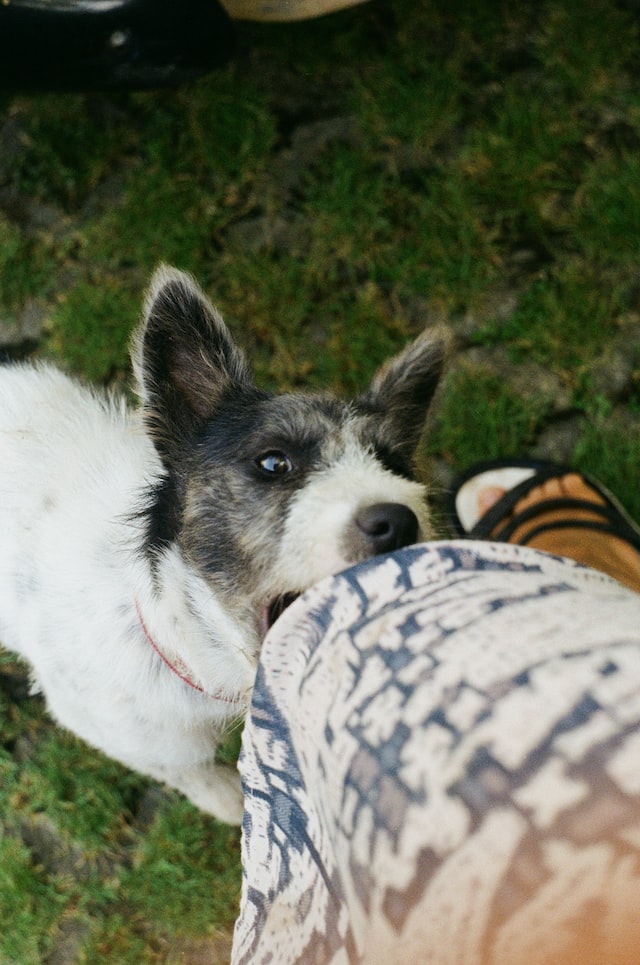
Bit and bitten are two forms of the verb "bite", which means to cut or tear with the teeth.
Bit is the simple past tense form of "bite", which is used to describe an action that sta...
'Breath' or 'Breathe'?

"Breath" and "breathe" are two words that are often confused because they are similar in spelling and pronunciation, but they have different meanings.
"Breath" is a noun that refers...
'Breach' or 'Breech'?
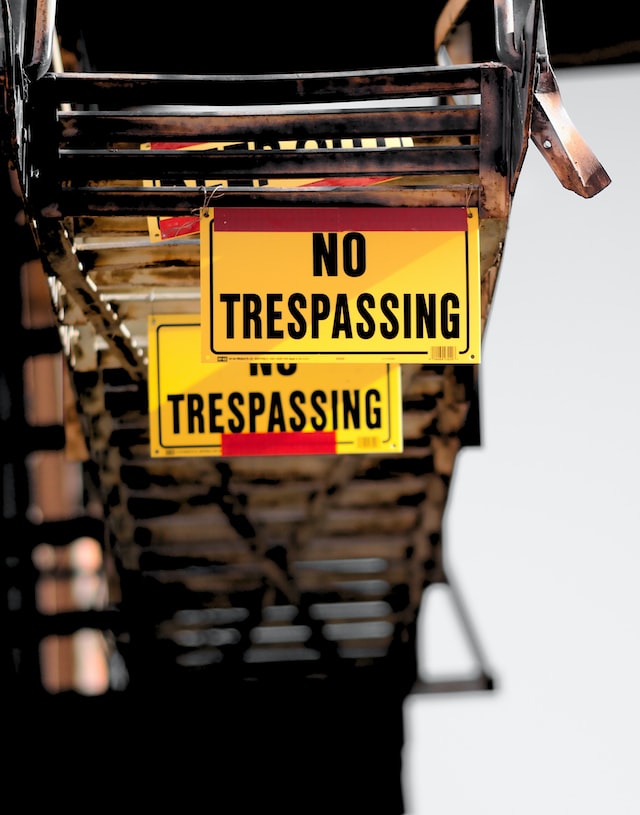
"Breach" and "breech" are two words that are often confused because they are similar in spelling and pronunciation, but they have different meanings.
"Breach" is a noun that refers ...
'Brake' or 'Break'?

"Break" and "brake" are two words that are often confused because they are similar in spelling and pronunciation, but they have different meanings.
"Break" is a verb that means to c...
'Broach' or 'Brooch'?

A brooch is a decorative pin that is worn on clothing or a bag. It is often used to hold a garment or piece of fabric together, or to add a decorative touch to an outfit.
On the oth...
'Bought' or 'Brought'?

Brought and bought are both past tense forms of the verb "to bring" and "to buy," respectively.
"Brought" is the past tense of "to bring," which means to carry, convey, or lead some...
'Brought' or 'Brung'?

"Brung" is a nonstandard past tense form of the verb "to bring." It is not considered correct grammar and should be avoided in formal writing and speech.
The correct past tense form...
-
"Burned" and "burnt" are both past tense forms of the verb "to burn," which means to be destroyed or damaged by fire, or to cause something to be destroyed or damaged by ...
'Burned' or 'Burnt'?
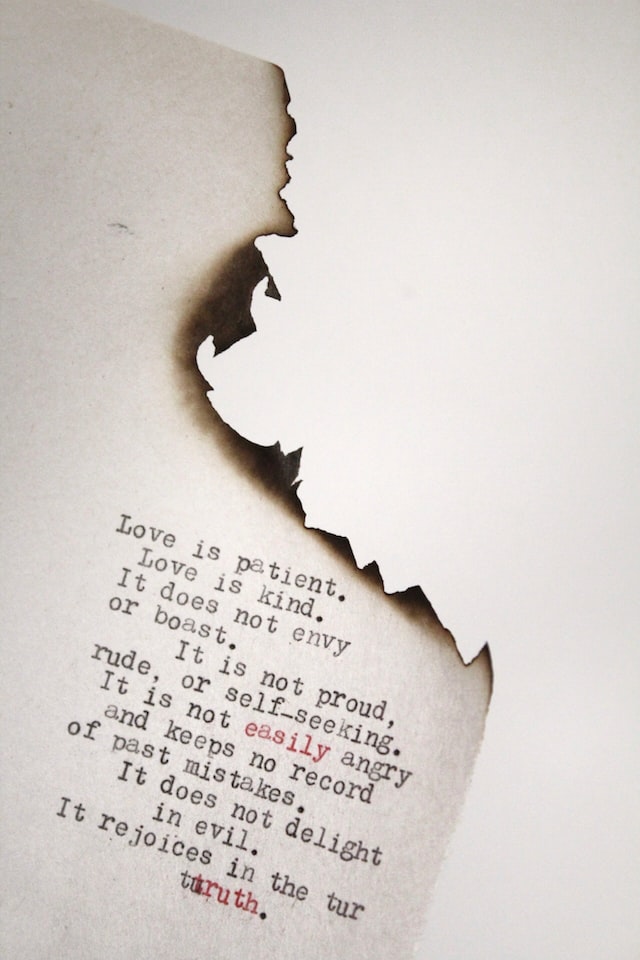
-
"Bring" and "take" are both verbs that indicate movement, but they are used in different contexts.
"Bring" is used when something or someone is carried or ...
'Bring' or 'Take'?

'Bad' or 'Badly'?

"Bad" and "badly" are often used to describe something or someone in a negative way. However, they are used slightly differently in sentences.
"Bad" is an adjective that describes a...
'Because' or 'Since'?

"Because" and "since" are two words that are often confused because they can both be used to introduce a reason or explanation. However, they are used in different contexts and have slightly diffe...
'Blackmail' or 'Extortion'?

"Blackmail" and "extortion" are both illegal activities that involve threatening or coercing someone to do something against their will. However, they are slightly different in the way that they a...
'To Bad' or 'Too Bad'?

The correct phrase is "too bad," which means that something is unfortunate or undesirable.
"Too" is an adverb that means "also" or "excessively," and it is often used to intensify t...
'Brasil' or 'Brazil'?

The correct English spelling of the country in South America is "Brazil."
The word "Brasil" is an alternate spelling that was used in the past, but it is no longer in common use. Th...
'Been' or 'Being'?

"Been" and "being" are forms of the verb "be," which is used to indicate the state or existence of something. However, they are used in slightly different ways in sentences.
"Been" ...
'Born' or 'Borne'?

"Born" and "borne" are two words that are often confused because they are spelled similarly and have similar sounds when pronounced. However, they have different meanings and are used in different...
'Bourgeoisie' or 'Bourgeois'?

"Bourgeoisie" and "bourgeois" are two words that are often confused because they are spelled similarly and have similar sounds when pronounced.
"Bourgeoisie" is a noun that refers t...
'Chord' or 'Cord'?

"Cord" and "chord" are two words that are pronounced similarly but have different meanings and spellings.
"Cord" refers to a thin, flexible string or rope made fr...
'Color' or 'Colour'?

"Color" and "colour" are alternative spellings of the same word, which refers to the visual appearance of things, based on the way that they reflect or emit light. The words have exactly the same...
'Case and Point' or 'Case in Point'?

"Case in point" is the correct spelling of the phrase that means "an example that illustrates or demonstrates a particular point."
"Case and point" is a misspelling of the phrase "c...
'Caramel' or 'Carmel'?

"Caramel" is a word that refers to a soft, chewy candy made from sugar, butter, and milk or cream. It is also used to describe the light brown color of this candy, or to refer to a similar c...
'Check' or 'Cheque'?

"Check" and "cheque" are two words that are pronounced similarly but have different meanings and spellings.
"Check" is a verb that means to look at or examine something in order to ...
'Clean Up' or 'Cleanup'?

"Cleanup" and "clean up" are similar phrases, but there is a difference in their usage.
"Clean up" is a verb phrase that means to make something neat, tidy, or free of clutter or di...
'Coma' or 'Comma'?

"Coma" and "comma" are two words that are often confused because they are spelled similarly and have similar sounds when pronounced. However, they have completely different meanings and are used i...
'Compare To' or 'Compare With'?

"Compare to" and "compare with" are similar phrases that are used to describe the act of examining or analyzing the characteristics or qualities of two or more things in order to identify similari...
'Of Coarse' or 'Of Course'?

"Of coarse" is a misspelling of the phrase "of course." "Of course" is a phrase that is used to indicate that something is expected or obvious. For example: "Of course I'll help you with your home...
'Concave' or 'Convex'?

"Concave" and "convex" are terms that are used to describe the curvature of a surface or line.
A surface or line is "concave" if it is curved inward, like the inside of a bowl. For ...
'Cite' or 'Site'?

"Cite" and "site" are two words that are often confused because they are spelled similarly and have similar sounds when pronounced. However, they have completely different meanings and are used in...
'Congratulations For' or 'Congratulations On'?

The correct way to use "congratulations" is "congratulations on." This is because "congratulations" is typically used to acknowledge and express approval or praise for someone's accomplishment or ...
'Cannon' or 'Canon'?

There are two different words that are spelled "cannon" and "canon," and they have different meanings.
"Cannon" can refer to a large artillery gun, or a heavy gun mounted on a carri...
'Caddie' or 'Caddy'?

Both "caddie" and "caddy" are correct spellings, but they have slightly different meanings.
"Caddie" refers to a person who carries a golfer's clubs and provides other assistance du...
'Catchup' or 'Catch Up'?

The phrase "catch up" means to come to the same level or position as someone or something else, often by making progress or gaining ground.
For example, you might say "I need to cat...
'Cosy' or 'Cozy'?

"Cozy" and "cosy" are two different spellings of the same word, which means comfortable and warm, especially in a way that feels relaxing or intimate.
Both spellings are acceptable,...
'Could Have' or 'Could Of'?

"Could have" is the correct form of the phrase. It is used to express the possibility or past ability to do something.
For example, "I could have finished the project on time if I h...
'Cast' or 'Casted'?

"Cast" is the correct form of the verb, and it means to throw or to project (something, such as a net or a line) outward.
It can also mean to select actors for a play or movie, or t...
'Center' or 'Centre'?

"Center" and "centre" are two different spellings of the same word, which refers to the middle point or area of something, or a place where something is located or occurs.
Bot...
'Crayfish' or 'Crawfish'?

"Crayfish" and "crawfish" are two different spellings of the same word, which refers to a freshwater crustacean that resembles a small lobster. Both spellings are acceptable, and they are used int...
'Cue' or 'Queue'?

Cue and queue are two words that are often pronounced the same, but they have different meanings and spellings.
A cue is a signal or prompt to do something, such as a word or phrase...
'Council' or 'Counsel'?

Council and counsel are two words that are often pronounced the same, but they have different meanings and spellings.
A council is a group of people who are appointed or elected to ...
'Camaraderie' or 'Comradery'?

Comradery and camaraderie are two words that are often used interchangeably to refer to a sense of mutual trust and friendship among a group of people. However, there is a subtle difference in the...
'In a Call' or 'On a Call'?

The phrases "in a call" and "on a call" both refer to being in a telephone conversation and the difference between the two phrases is so subtle that they can generally be used interchangeably.
...'Confirmation' or 'Conformation'?

Conformation and confirmation are two words that are often confused because they are similar in spelling and pronunciation. However, they have very different meanings.
Conformation ...
'Canvas' or 'Canvass'?

Canvas and canvass are two words that are often confused because they are similar in spelling and pronunciation. However, they have different meanings.
Canvas is a strong, durable f...
'Creek' or 'Crick'?

Creek and crick are two words that are often used to describe a small stream or channel of water. However, they are used in different parts of the United States and have slightly different meaning...
'Coming' or 'Comming'?

Comming is not a word in the English language. It is a misspelling of coming.
Coming is the present participle form of the verb "to come," which means to move or ...
'Comprised of' or 'Consists of'?

“Comprised of” and “consists of” are two phrases that are often used to describe the makeup or components of something. However, they have slightly different meanings.
...'Divine' or 'Devine'?

Divine means relating to or coming directly from a god, goddess or other deity. It can also refer to something that is intensely pleasing, enjoyable or delightful. You could say for example:
...'Dependant' or 'Dependent'?

Dependent and dependant are two words that are often confused because they are similar in spelling and pronunciation. However, they are different word types and have different meanings.
...'Dependance' or 'Dependence'?

Dependance is not a word in the English language. It is a misspelling of dependence.
Dependence is a noun that means the state of relying on someone or something else for support or...
'Deactivate' or 'Inactivate'?

Inactivate and deactivate are two words that are often used to describe the process of making something inactive or nonfunctional. However, they have slightly different meanings.
In...
'Descendant' or 'Descendent'?

Descendent and descendant are two words that are often confused because they are similar in spelling and pronunciation. However, they have the same meaning.
Both descendent and desc...
'Driven' or 'Drove'?

Drove and driven are two forms of the verb "drive." Drove is the past tense form of the verb, while driven is the past participle form. They are used in different contexts and can be used in diffe...
'Deep-Seeded' or 'Deep-Seated'?

The correct phrase is "deep-seated." "Deep-seeded" is not a correct phrase in the English language.
"Deep-seated" means deeply established or firmly ingrained. It is often used to d...
'Diner' or 'Dinner'?

"Diner" and "dinner" are two different words with distinct meanings.
"Diner" is a noun that refers to a small, informal restaurant that typically serves American food, especially ha...
'Despite' or 'In Spite Of'?

Despite and in spite of are similar in meaning and can often be used interchangeably in a sentence to express a contrast between two things. However, they are not always interchangeable and have s...
'Device' or 'Devise'?

Device and devise are two words that are often confused because they are similar in spelling and pronunciation. However, they have different meanings and are used in different contexts.
...'Denounce' or 'Renounce'?

Denounce and renounce are two words that are often confused because they are similar in spelling and pronunciation. However, they have different meanings and are used in different contexts.
...'Dam' or 'Damn'?

Dam and damn are two words that are often confused because they are similar in spelling and pronunciation. However, they have different meanings and are used in different contexts.
...
'Drier' or 'Dryer'?

Drier and dryer are two words that are often confused because they are similar in spelling and pronunciation. However, they have different meanings and are used in different contexts.
...'Develope' or 'Develop'?

Develope is not an English word. It is a common misspelling of the word develop.
Develop is a verb that means to grow, progress, or evolve. It can be used to describe the process of...
'Defence' or 'Defense'?

There is no difference in meaning between the words "defence" and "defense."
Both "defence" and "defense" are acceptable spellings of the same word, which refers to the act of prote...
'Disfunction' or 'Dysfunction'?

There is no difference in meaning between the words "disfunction" and "dysfunction." Both words refer to a lack of normal or proper functioning.
"Disfunction" and "dysfunction" can ...
'Disorganized' or 'Unorganized'?

"Disorganized" and "unorganized" both refer to a lack of organization or structure. However, there is a subtle difference in the connotations of these two words.
"Disorganized" typi...
'Dissatisfied' or 'Unsatisfied'?

"Dissatisfied" and "unsatisfied" both refer to a state of being unhappy or discontent with something. However, there is a subtle difference in the connotations of these two words.
"...
'Distrust' or 'Mistrust'?

Distrust" and "mistrust" both refer to a lack of trust or confidence in someone or something. However, there is a subtle difference in the connotations of these two words.
"Distrust...
'Dragged' or 'Drug'?

The past tense of the verb "drag" is "dragged." "Dragged" is the past tense form of the verb "drag," which means to pull or haul something along, often with difficulty or effort.
Fo...
'Dived' or 'Dove'?

"Dived" and "dove" are both past tense forms of the verb "dive," which means to plunge into water or to jump into water headfirst.
"Dived" is the more traditional past tense form of...
'Disinterested' or 'Uninterested'?

"Disinterested" and "uninterested" are often used interchangeably, but they have slightly different meanings.
"Disinterested" means not influenced by considerations of personal adva...
'Dieing' or 'Dying'?

Dieing is not a word. It is a common misspelling of the word dying. The spelling "dieing" is incorrect and should be avoided.
Dying is the correct spelling. It is a present particip...
'Different From' or 'Different Than'?

Different from is the correct phrase to use when comparing two things that are not the same. This phrase is used to indicate that one thing is not the same as another thing.
Differe...
'Draft' or 'Draught'?

The words draft and draught both come from the Old English word "dræf," which means "a drawing or pulling." The word has evolved over time and is now used in slightly different contexts depe...
'Dreamed' or 'Dreamt'?

Dreamt and dreamed are both forms of the verb "dream," which means to have a series of thoughts, images, and sensations occurring in a person's mind during sleep.
Both dreamt ...
'Drank' or 'Drunk'?

Drank and drunk are both forms of the verb "drink," which means to consume liquid, typically water or an alcoholic beverage. Both drank and drunk are correct, but they are used in different contex...
'For More Detail' or 'For More Details'?

The phrase "for more details" is used to indicate that additional information is available about a specific topic or issue. It is often used in written materials such as reports, articles, or docu...
'Drive Safe' or 'Drive Safely'?

"Drive safe" and "drive safely" are both ways to tell someone to be cautious and careful while driving. Both phrases are correct and can be used interchangeably.
"Drive safe" is a s...
'Dual' or 'Duel'?
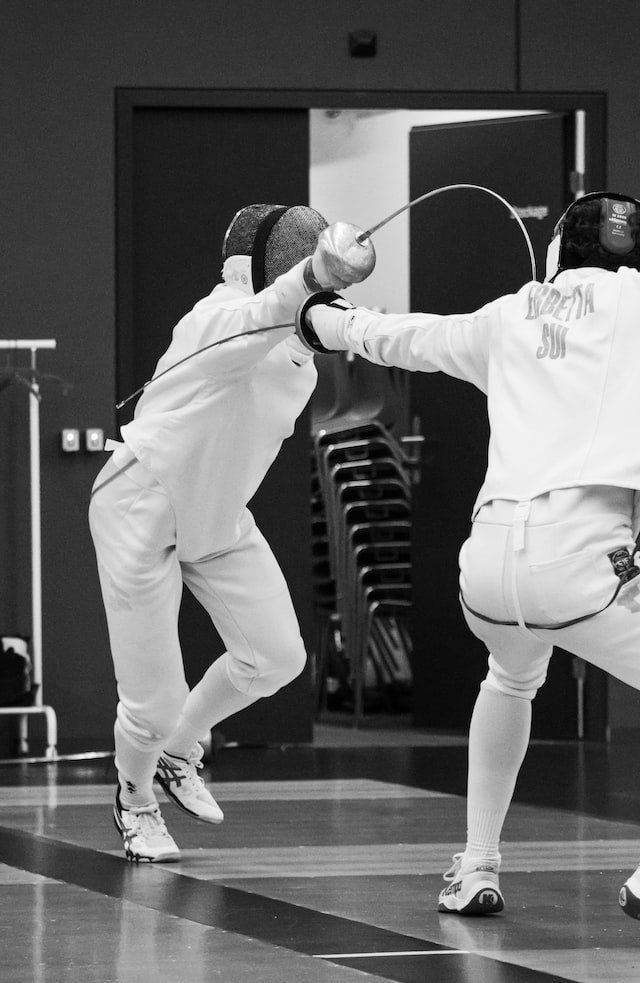
Dual and duel are two words that are often confused, but they have different meanings.
Dual is an adjective that means "consisting of two parts or things." It is often used to descr...
'Do To' or 'Due To'?

Do to is a phrase that is incorrect. The correct phrase is "due to." Do to is not a correct word or phrase in English.
Due to is a preposition that means "as a result of" or "caused...
'Make Do' or 'Make Due'?

Make due is a phrase that is incorrect. The correct phrase is "make do."
Make do is a phrase that means "to manage or cope with a difficult situation using whatever resources are av...
'Do' or 'Due'?

Do and due are two words that are often confused, but they have different meanings.
Do is a verb that means "to perform an action" or "to make something happen." It is often used as...
'Drop Off' or 'Dropoff'?

Drop off and dropoff are two words that are often confused, but they have different meanings.
Drop off is a verb phrase that means "to leave someone or something somewhere, usually ...
'Eatable' or 'Edible'?

Eatable and edible are two words that are often confused, but they have the same meaning, which is "suitable for being eaten."
Eatable and edible have been used for centuries to des...
'Efficacy' or 'Efficiency'?

Efficacy is a measure of the ability of a particular intervention, such as a drug or a treatment, to produce a desired effect. It is often used to describe the effectiveness or potency of a partic...
'Elder' or 'Older'?

The words "elder" and "older" are both used to describe a person who is advanced in age compared to someone else. However, there are some important differences between these words that you should ...
'Embed' or 'Imbed'?

The words "embed" and "imbed" are often used interchangeably, but they do have slightly different meanings. It's important to use the correct word in order to communicate clearly and avoid confusi...
'Empathetic' or 'Empathic'?

The words "empathetic" and "empathic" are often used interchangeably to describe someone who is able to understand and share the feelings of another person.
Both words refer to the ...
'En Route' or 'In Route'?

"En route" is a French phrase that means "on the way." It is used to describe something or someone that is traveling or moving towards a destination.
For example: "The ambulance is ...
'Endeavor' or 'Endeavour'?

"Endeavor" and "endeavour" are alternative spellings of the same word, which means "a determined effort to achieve a goal."
Both spellings are used in English, but "endeavor" is the...
'Engrained' or 'Ingrained'?

"Ingrained" and "engrained" are alternative spellings of the same word, which is used as an adjective to describe something that is deeply or firmly impressed or ingrained. Both spellings are used...
'Every One' or 'Everyone'?

"Everyone" and "every one" are often used interchangeably, but they have slightly different meanings and uses.
"Everyone" is a pronoun that means "all people." It refers to all the ...
'Everyone Are' or 'Everyone Is'?

The correct verb to use with "everyone" depends on the subject-verb agreement rules in English.
"Everyone" is a singular pronoun, so the verb that follows it should be singular as w...
'Everybody' or 'Everyone'?

"Everyone" and "everybody" are often used interchangeably to mean "all people," but there are slight differences in their usage and connotations.
"Everyone" is a pronoun that means ...
'Every Thing' or 'Everything'?

"Every thing" and "everything" are both used to mean "all things," but "every thing" is less common and is not considered standard English.
"Every thing" is a noun phrase that means...
'Evoke' or 'Invoke'?

"Evoke" and "invoke" are both verbs that mean to bring something to mind or to call upon something for help or support. However, there is a subtle difference in the way these terms are used and de...
'Eyeing' or 'Eying'?

"Eyeing" is the correct spelling of the verb that means to look at something with interest or intent.
"Eying" is a misspelling of the word "eyeing," and it is not a commonly used or...
'Especially' or 'Specially'?

"Especially" and "specially" are both adverbs that can be used to indicate that something is of particular importance or significance. However, there is a subtle difference in the way these terms ...
'In Bed' or 'On Bed'?

The preposition "in" is used to indicate that someone is physically located inside or within something, while the preposition "on" is used to indicate that something is physically located on top o...
'Envision' or 'Invision'?

"Envision" and "invision" are both verbs, but they have slightly different meanings.
"Envision" means to form a mental image or picture of something in your mind, or to imagine or a...
'Envelop' or 'Envelope'?

Envelop and envelope are two words that are often used interchangeably, but they actually have different meanings.
The word "envelop" is a verb that means to cover or enclose someth...
'Enclosed' or 'Inclosed'?

"Enclosed" and "inclosed" are both past participles of the verb "enclose," which means to surround or enclose something within a boundary or barrier.
However, "enclosed" is the more...
'Espresso' or 'Expresso'?

Espresso is a type of coffee that is made by forcing hot water through finely ground coffee beans at high pressure
It is a strong, concentrated coffee that is typically served in sm...
'Enrol' or 'Enroll'?

"Enrol" and "enroll" are two different spellings of the same verb, which means to register or enroll in a school, course, or program.
Both spellings are correct and are used in diff...
'Forteen' or 'Fourteen'?

"Forteen" is not a word. It is a misspelling of the word "fourteen," which is the number 14.
It is easy to see how someone might confuse the two spellings, as they are only one lett...
'Forth' or 'Fourth'?

The words “forth” and “fourth” are homonyms, meaning that they are pronounced in the same way. Although they are similar in sound they have very different meanings.
'Flier' or 'Flyer'?

The words "flier" and "flyer" are used to refer to a person or thing that flies, or to a promotional leaflet or advertisement. They are often used interchangeably, and there is no clear difference...
'Time Flies' or 'Time Flys'?

The correct phrase is "time flies."
The phrase "time flies" means that time passes quickly. It is often used to express surprise at how quickly time has passed. The phrase is though...
'Flautist' or 'Flutist'?

Although "flutist" and "flautist" are used to refer to the same thing, there are some subtle differences in the way that they are used.
"Flutist" is the more common spelling in the ...
'Flavor' or 'Flavour'?

"Flavor" and "flavour" are both words that refer to the taste or smell of something. They can be used to describe the distinct taste of a particular food or drink, or to describe the overall exper...
'Formally' or 'Formerly'?

"Formally" and "formerly" are homonyms which means that they sound the same. Their meanings however, are different and they are used in different contexts.
"Formally" is an ad...
'Fare' or 'Fair'?

"Fare" and "fair" are two different words with the same pronunciation but different meanings.
"Fare" can be a noun or a verb, and it has a few different meanings.
As ...
'Favor' or 'Favour'?

"Favor" and "favour" are different spellings of the same word, which means "kindness or helpfulness shown towards someone or something."
The word is typically used as a noun, but it...
'Flakey' or 'Flaky'?

There is no difference in meaning between "flaky" and "flakey." Both words are used as adjectives to describe something or someone that is unreliable or prone to cancelling at the last minute.
...'Forty' or 'Fourty'?

"Forty" is the correct spelling of the word that means the number 40.
"Fourty" is a misspelling of the word. It is a common mistake, likely because the word is formed by combining t...
'Faze' or 'Phase'?

"Faze" and "phase" are two words that are often confused because they are pronounced similarly and have some overlapping meanings. However, they are actually quite different words.
...
'Flair' or 'Flare'?

"Flair" and "flare" are two words that are often confused because they are pronounced and written similarly. However, they are actually quite different words.
"Flair" is a noun that...
'Flies' or 'Flys'?

"Flies" is the correct spelling for the plural form of the word "fly," which can be a noun or a verb.
"Flys" is not a word.
As a noun, a fly is a small insect with wi...
'Flounder' or 'Founder'?

"Flounder" and "founder" are two words that are often confused because they are spelled similarly and have some overlap in their meanings.
However, they are actually quite different...
'Former' or 'Latter'?

"Former" and "latter" are two words that are often used to distinguish between two things or people that have been previously mentioned.
While they are similar in that they both ref...
'Favorite' or 'Favourite'?

The words "favorite" and "favourite" both refer to something or someone that is preferred above all others. However, these two spellings are used in different parts of the world.
"F...
'Fiber' or 'Fibre'?

There is no real difference between "fiber" and "fibre" in terms of their meaning or the materials they refer to.
The spelling "fiber" is used primarily in American English, while "...
'Filet' or 'Fillet'?
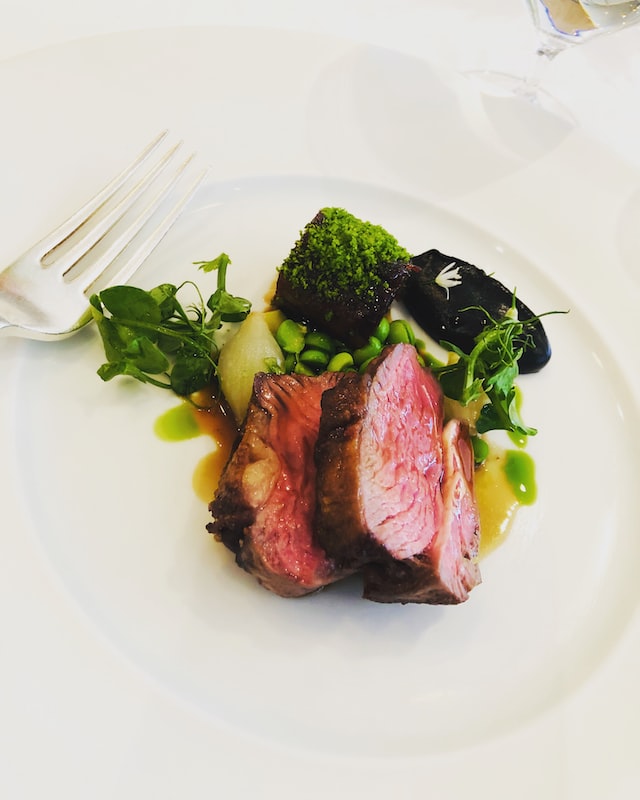
"Fillet" and "filet" are both correct spellings, but they have different meanings and uses. "Fillet" is a noun that refers to a thin piece of boneless meat, usually cut from the loin or rib area, ...
'Flesh Out' or 'Flush Out'?

"Flesh out" and "flush out" are two idiomatic phrases that are commonly used in English.
"Flesh out" means to develop or add more details or content to something, such as an idea, p...
'Follow Up' or 'Followup'?

The words "follow up" and "followup" have similar meanings, but they are used in different ways.
"Follow up" is a verb phrase that means to take action to continue or complete somet...
'Egoist' or 'Egotist'?

Egoist and egotist are related terms but there is a subtle difference in their meanings.
An egoist is someone who prioritizes their own needs and desires above those of others.
...'Gist' or 'Jist'?

"Jist" and "gist" are variant spellings of the same word, which is "gist."
The word "gist" is derived from the Old French word "gist", which means "lie" or "to lie" later in the ear...
'Glueing' or 'Gluing'?

Both "glueing" and "gluing" are alternative spellings of the same word.
The word "gluing" is a verb that refers to the act of attaching or joining two or more things together by usi...
'Grill' or 'Grille'?

"Grill" and "grille" are two words that are often used interchangeably, but they have slightly different meanings.
A "grill" is a device used for cooking food, ty...
'Grinded' or 'Ground'?
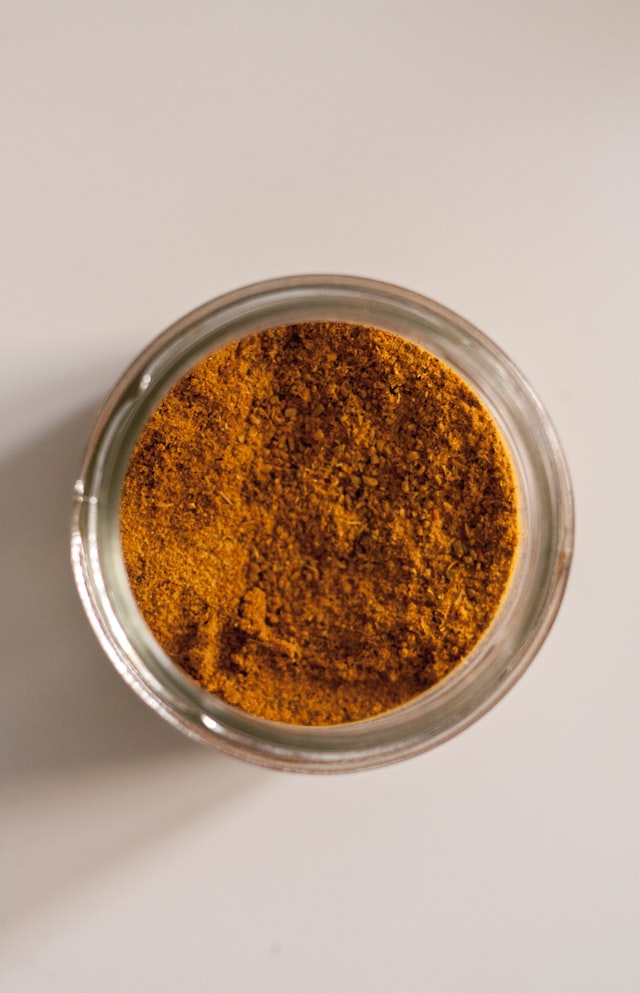
"Grinded" is a common misspelling of the past participle "ground" and it is not a word that is commonly used in the English language.
It is not used in any standa...
'Grammar' or 'Grammer'?
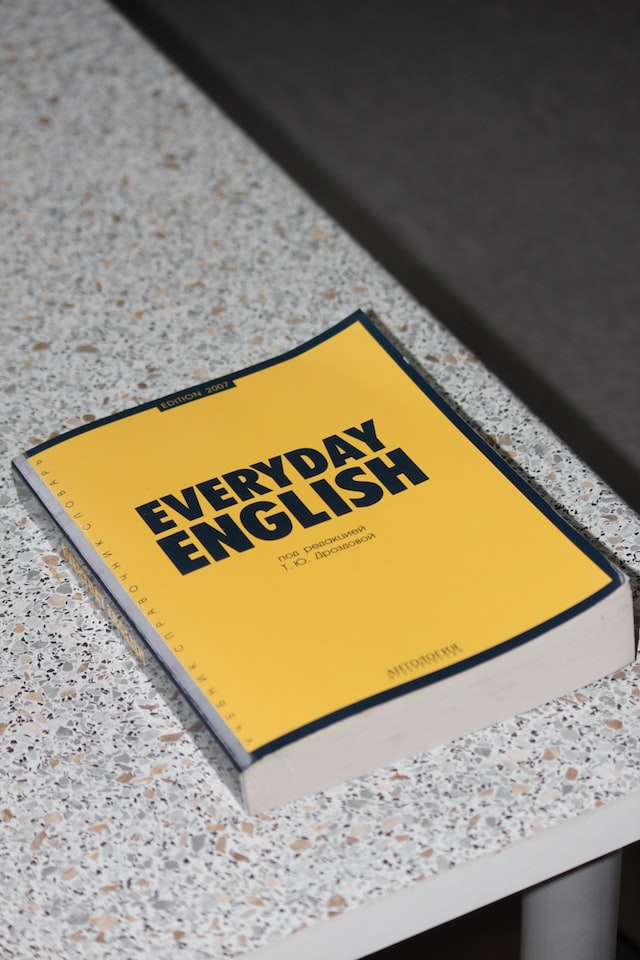
"Grammar" is the correct spelling of the word, while "grammer" is a misspelling.
The word "grammar" refers to the set of rules and structures that govern the comp...
'Geez' or 'Jeez'?

"Jeez" and "geez" are both informal exclamations that are used to express surprise, frustration, or emphasis.
They are both considered mild swear words or interjections, and they ar...
'Girlie' or 'Girly'?

"Girlie" and "girly" are both variant spellings of the same adjective, which is used to describe things that have traditionally been associated with girls or young women.
They have ...
'Grateful' or 'Greatful'?

"Grateful" is an adjective that is used to express thankfulness or appreciation for something or someone.
It is used to show that you recognize the value or significance of what has...
'Good Night' or 'Goodnight'?

The difference between "goodnight" and "good night" is primarily one of usage and context.
"Goodnight" is a contraction of "good night," and it is often used as a farewell phrase.&n...
'Grately' or 'Greatly'?

"Grately" is not a word in the English language and it is not recognized by any reputable dictionaries. It is a misspelling of the word "greatly".
The word "greatly" is an adverb wh...
'Hale' or 'Hail'?

Hail and hale are two words that are often confused due to their similar spelling, but they have completely different meanings.
Hail refers to small balls of ice that fall from the ...
'Heal' or 'Heel'?

Heal and heel are two words that are often confused due to their similar spelling, but they have completely different meanings.
Heal refers to the process of becoming healthy or wel...
'Hyper' or 'Hypo'?

Hyper and hypo are both prefixes used in medical and scientific terms to indicate a condition that is either above or below normal levels.
Hyper- is a prefix that means above, exces...
'Hoping' or 'Hopping'?

Hoping and hopping are two words that are often confused due to their similar spelling, but they have completely different meanings.
Hoping refers to the act of wanting something to...
'Hoard' or 'Horde'?

The words "hoard" and "horde" are related in meaning but are used in different contexts.
A "hoard" is a large collection of something that is kept hidden or stored away for future u...
'Hard Work' or 'Hardwork'?

"Hard work" is a noun phrase that refers to the act or effort required to achieve a task or goal.
It implies a consistent and dedicated effort over a period of time to achieve somet...
'Hangar' or 'Hanger'?

The difference between "hangar" and "hanger" is in their meanings and usage.
A "hangar" is a large, enclosed building used to store aircraft.
Hangars are typically fo...
'Hardy' or 'Hearty'?

The words "hardy" and "hearty" have distinct meanings, and they are not interchangeable.
"Hardy" is an adjective that means robust, tough, and able to withstand harsh conditions.
'Heard' or 'Herd'?

The words "heard" and "herd" are homophones, which means they sound the same but have different meanings and spellings.
"Heard" is the past tense and past participle of the verb "he...
'Hear' or 'Here'?

"Hear" and "here" are two words that are commonly confused as they are homonyms, meaning they are pronounced in the same way.
However, they have different meanings and functions, an...
'Happiness' or 'Happyness'?

"Happiness" is a commonly used noun in the English language that refers to the state of being happy or content.
It expresses emotions and feelings of well-being, satisfaction, pleas...
'Hare' or 'Rabbit'?

The difference between a hare and a rabbit is primarily in their physical characteristics and behavior.
Hares are generally larger and have longer ears and legs than rabbits.
...'Infer' or 'Imply'?

"Imply" and "infer" are related but distinct terms that refer to the communication of information or meaning.
"Imply" means to suggest something without saying it...
'Illegal' or 'Unlawful'?

"Illegal" and "unlawful" are terms that are often used interchangeably, but they have slightly different meanings.
"Illegal" refers to something that is prohibited or not allowed by...
'Ignorant' or 'Stupid'?

"Ignorant" and "stupid" are two words that are often used to describe someone who lacks knowledge or understanding, but they have different connotations and implications.
"Ignorant"...
'Immanent' or 'Imminent'?

"Immanent" and "imminent" are two words that are often confused, but they have different meanings.
"Immanent" refers to something that is inherent or innate, and is present within s...
'Borrow' or 'Lend'?

"Borrow" and "lend" are related but opposite terms in the context of lending or borrowing something.
"Borrow" refers to the act of taking something temporarily with the intention of...
'Dialog' or 'Dialogue'?

"Dialog" and "dialogue" are two words that are often confused, but they have the same meaning, which is the conversation or discussion between two or more people, or between a person and a charact...
'Foul' or 'Fowl'?
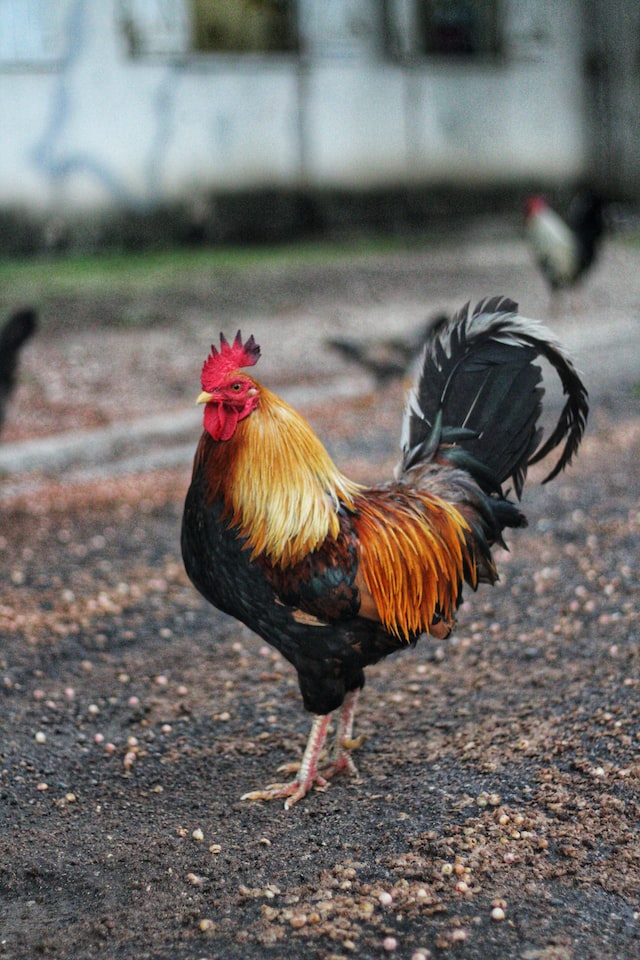
"Fowl" and "foul" are two words that are similar in spelling but have different meanings.
"Fowl" refers to birds that are used for food or hunting, such as chickens, ducks, geese, a...
'Gray' or 'Grey'?

The English language is known for its many variations and spellings, and the difference between "gray" and "grey" is a prime example of this.
Both words are used to describe the col...
'Genius' or 'Genious'?

"Genius" is a noun that refers to a person who is exceptionally intelligent or talented, especially in a particular field.
The word is often used to describe individuals who have ma...
'Gage' or 'Gauge'?
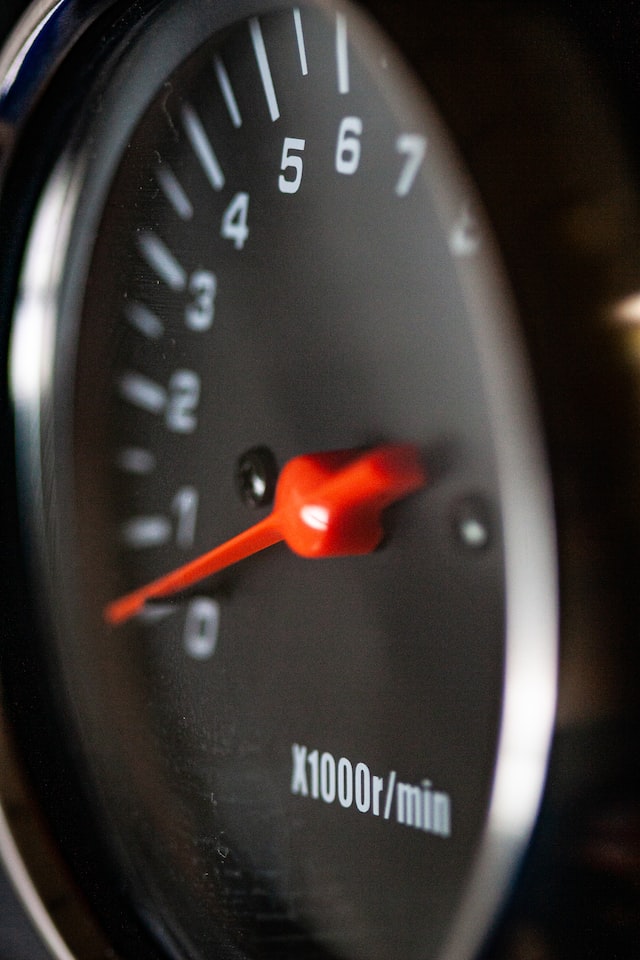
"Gage" and "gauge" are two words that are often confused, but they have different meanings.
"Gage" is a verb that means to pledge or give as a guarantee, or to put up as a stake in ...
'Guarantee' or 'Guaranty'?

Both "guaranty" and "guarantee" are nouns that refer to a promise or undertaking that something is certain or will be done.
The main difference between "guaranty" and "guarantee" is...
'Grandad' or 'Granddad'?

"Granddad" and "grandad" are alternative spellings of the same word, which refers to a father's father.
It is a term used affectionately to address an older man who is the grandfath...
'Gram' or 'Gramme'?

"Gram" and "gramme" are alternative spellings of the same unit of measurement, which is used to measure weight or mass. The gram is the base unit of mass in the International System of Units (SI)....
'Hooray' or 'Hurray'?

Hooray and hurray are both exclamations used to express excitement or joy, and they have been used for a long time in the English language.
"Hooray" first appeared in the mid-17th c...
'Compliance' or 'Conformity'?

Compliance and conformity are two related but distinct concepts that have to do with following rules, regulations and norms.
Compliance refers to the act of following a rule or a la...
'Climactic' or 'Climatic'?

"Climatic" and "climactic" are two words that sound similar but have different meanings and uses.
"Climatic" is an adjective that refers to the climate or the weather.
<...'Conscience' or 'Conscious'?

"Conscience" and "conscious" are two words that sound similar but have different meanings and uses.
"Conscience" is a noun that refers to an inner sense of what is right or wrong in...
'Contagious' or 'Infectious'?
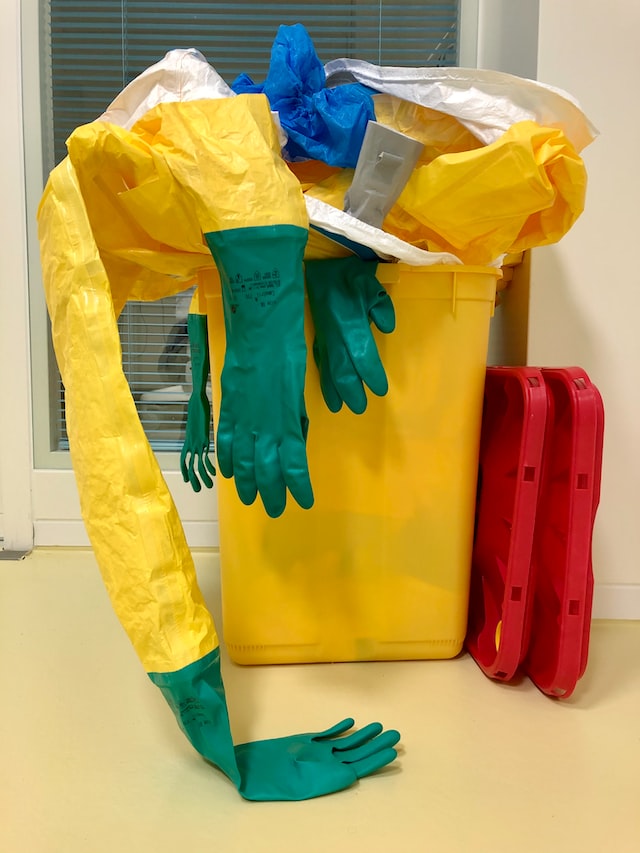
"Contagious" and "infectious" are two words that are often used to describe the spread of diseases, but they have slightly different meanings.
"Contagious" is an adjective used to d...
'Discreet' or 'Discrete'?

"Discreet" and "discrete" are two words that are often confused, but have different meanings.
"Discreet" is used to describe a person or their behavior, it means being careful and c...
'Gift' or 'Present'?

When used as a noun, the words "gift" and "present" can be considered interchangeable as they both refer to something given to another person. However, there are some subtle differences between th...
'In Time' or 'On Time'?
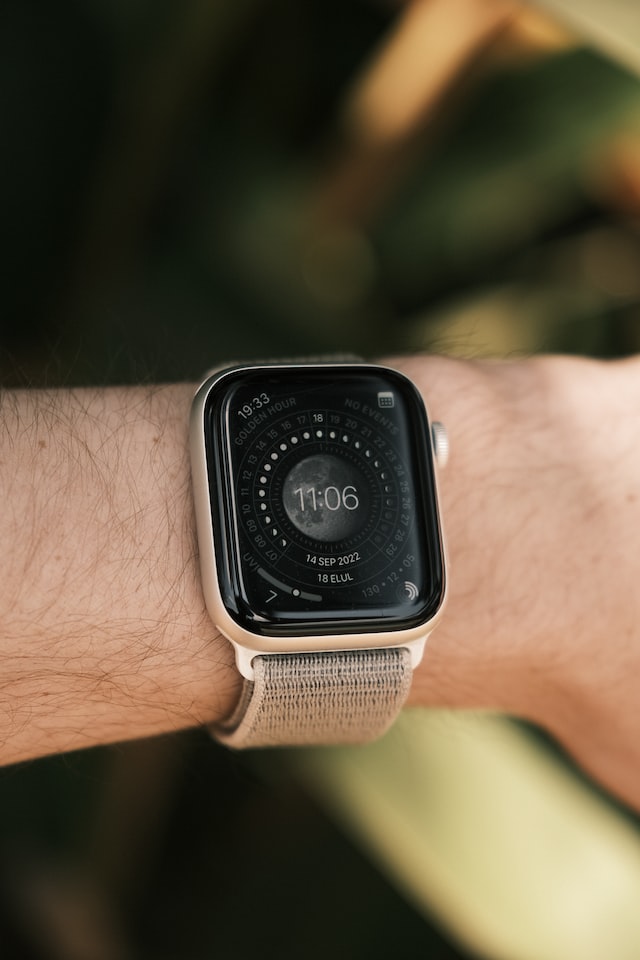
In time and on time are two phrases that are often used to describe the punctuality of a person or event. However, they have slightly different meanings and connotations.
"In time" ...
'Harbor' or 'Harbour'?

"Harbor" and "harbour" are alternative spellings of the same word.
They refer to a sheltered area of water where ships and boats can dock, and where cargo and passengers can be load...
'It Is I' or 'It Is Me'?

"It is I" and "It is me" are both ways of saying "I am the one" or "I am the person/subject in question."
However, "It is I" is considered more formal and is often used in written o...
-
To be in accord or consistent...
'Jibe' or 'Jive'?

"Jibe" and "jive" are two different words with distinct meanings.
The word "jibe" is a verb with two meanings:
'Irregardless' or 'Regardless'?

The use of the word irregardless in the English language is controversial due to its double negative. Does it have the same or opposite meaning as regardless? In this post we explore t...
'Home In' or 'Hone In'?

Home in and hone in are phrases that are used to indicate a process of focusing or zeroing in on a specific target or goal.
The meaning of both phrases is essentially the same, but ...
'Honor' or 'Honour'?

Honor and Honour are two spellings of the same word that refer to high respect or admiration for someone or something, or recognition of someone's achievements or status.
The word c...
'Kneeled' or 'Knelt'?

The past tense forms of the verb "kneel" are "kneeled" and "knelt." Both forms are considered to be correct and acceptable spellings, not only for the past tense of "kneel," but also for its...
'Kindergarden' or 'Kindergarten'?

A kindergarten is a type of educational institution or program designed for young children, usually from the ages of four to six years old.
It is a German word, which literally mean...
'Kick Off' or 'Kickoff'?

Kickoff and kick off are two phrases that are often used interchangeably, but they have slightly different meanings.
Kickoff is a noun that refers to the beginning of a game or even...
'Humor' or 'Humour'?

Humor and humour are two different spellings of the same word, which refers to the quality of being amusing or comical.
Both spellings are used in different variants of English, wit...
'Icey' or 'Icy'?

The spellings icy and icey are often used interchangeably, but it is important to note that "icey" is not an accepted spelling by any dictionaries. It is sometimes used informally or colloquially,...
'In the Bus' or 'On the Bus'?

The phrases "on the bus" and "in the bus" are both commonly used to refer to the location of someone in relation to a bus. However, they have different connotations and imply different things abou...
'Igniter' or 'Ignitor'?

An igniter and an ignitor are both devices that are used to start a fire or initiate a chemical reaction. However, while both spellings are accepted, "igniter" is more commonly used in everyday la...
'Leaped' or 'Leapt'?

The English language is a constantly evolving and dynamic entity, and one of the ways in which it changes over time is through the use of different verb forms.
One example of this c...
'Lead' or 'Led'?

Lead and led are two forms of the verb "to lead." They are often used interchangeably, but they have distinct meanings and uses. Understanding the difference between these two forms is crucial to ...
'Lasagna' or 'Lasagne'?

Lasagna and lasagne are both popular dishes that have been enjoyed for centuries, but there are some key differences between the two.
The most obvious difference is the spelling, wi...
'Lens' or 'Lense'?

Lens and Lense are two words that are often used interchangeably, but they have different meanings and uses.
A lens is a piece of glass or other transparent material that is used to...
'Let's' or 'Lets'?

Let's and lets are two words that are often used interchangeably, but they have different meanings and uses. They cannot be used interchangeably as they have distinct meanings and are used i...
'Loose' or 'Lose'?

Loose and lose are two words that are often confused in writing and speaking. They are homophones, meaning they sound the same but have different meanings and spellings.
"Loose" is ...
'Liar' or 'Lier'?

Liar and lier are two words that are often confused due to their similarities in spelling and origin. Both words are derived from the verb "to lie," but they have distinct meanings and uses.
...'Lended' or 'Lent'?

"To lend" means to give something temporarily to someone else with the expectation that it will be returned. The word “lent” is used for both the simple past tense and the past partici...
'Lifes' or 'Lives'?

Life and lives are two different words with different meanings and uses. Life is a noun that refers to the existence of a living organism, while lives is the plural form of the same noun.
...'Labeled' or 'Labelled'?

Labeled and labelled are forms of the verb "to label," which means to attach a name or description to something.
Labeled is the past tense and past participle form used in American ...
'Labor' or 'Labour'?

Labor and labour are two forms of the same word that are used in different regions of the world.
In American English, the word "labor" is used to refer to the physical or mental eff...
'Light' or 'Lite'?

"Light" and "lite" are two different words with similar meanings, but distinct connotations.
"Light" is used as an adjective to describe something that is not heavy, or something th...
'Lightening' or 'Lightning'?

"Lightening" and "lightning" are two words that are often confused, but have distinct meanings and connotations.
"Lightening" is the present participle form of the verb "to lighten"...
'Leary' or 'Leery'?

"Leary" and "leery" are two different spellings of the same word, with the same meaning.
The word is an adjective that is used to describe someone who is suspicious or distrustful. ...
'Left over' or 'Leftover'?

"Leftover" and "left over" are two different phrases with the same meaning.
They both refer to something that remains after the majority has been used or consumed. For example, food...
'Reckless' or 'Wreckless'?

The correct spelling of the term referring to dangerous or careless behavior is "reckless." "Wreckless" is a common misspelling likely brought about by incorrect association with the word “w...
'Recur' or 'Reoccur'?

The words "recur" and "reoccur" are similar and related words, but they have slightly different meanings that should be understood to correctly convey the intended meaning.
"Recur" ...
'Quiet' or 'Quite'?

The words "quiet" and "quite" are homophones, meaning they sound the same but have different meanings and uses in the English language.
"Quiet" is an adjective that describes a stat...
'Lend' or 'Loan'?

"Lend" and "loan" are two words that can be used interchangeably, but their main definitions have distinct meanings and uses.
Both words refer to the act of providing something, usu...
'Loss' or 'Lost'?

Loss and lost are two words that are commonly confused due to their similar meanings and pronunciation.
Both words are related to the idea of something being gone or no longer in po...
'Lunch Time' or 'Lunchtime'?

When it comes to the question of whether to use "lunch time" or "lunchtime," both options are technically correct, but they have slightly different meanings and uses.
"Lunchtime" is...
'Loath' or 'Loathe'?

The words "loathe" and "loath" may look similar, but they have distinct meanings and uses.
"Loathe" is a verb that means to dislike or hate something or someone very strongly. ...
'Liter' or 'Litre'?

The words "liter" and "litre" are both units of measurement for volume, but they are used in different parts of the world.
"Liter" is the standard unit of measurement for volume in ...
'Liqueur' or 'Liquor'?

Liqueur and liquor are both types of alcoholic beverages, but they are different in terms of their production, ingredients, and uses.
Liqueur is a sweet, flavored alcoholic drink th...
'Ladder' or 'Latter'?

Ladder and latter are two commonly used words that are often confused due to their similar spelling and pronunciation. However, they have different meanings and uses, and it is important to unders...
'Log in' or 'Login'?

Log in and login are forms of the same word, referring to the process of accessing an account, system or website by entering a username and password.
However, the usage of the two f...
'It's' or 'Its'?

The difference between "its" and "it's" is a common source of confusion for English writers. While both forms appear similar, they have distinct uses in the language. Understanding the difference ...
'Lie' or 'Lye'?

"Lie" and "lye" are two words that are commonly confused due to their similarities in pronunciation and spelling. However, these words have different meanings and uses.
"Lie" is a v...
'Lighted' or 'Lit'?

Lighted and lit are two words that are commonly used interchangeably and refer to the act of starting a light or a fire.
The verb ‘to light’ is one of the rare verbs tha...
'Make Up' or 'Makeup'?

"Makeup" and "make up" are two words that are often confused, but they have very different meanings and uses.
"Makeup" is a noun that refers to the products used ...
'Mantel' or 'Mantle'?

Mantel and mantle are two words in the English language that are often used interchangeably, but they have different meanings and uses.
A mantel refers to a decorative shelf that is...
'Master' or 'Mister'?

Master and Mister are two terms in the English language that are often used interchangeably, but they have distinct meanings and uses.
Master refers to a title used for a male perso...
'Moustache' or 'Mustache'?

Moustache and mustache are two spellings of the same word, referring to the hair that grows on a man's upper lip.
The spelling "moustache" is the original French spelling, while "mu...
'Funnest' or 'Most Fun'? 'Funner' or 'More Fun'?

The words “funner” and “funnest” may sound strange to some English speakers. Are they considered to be grammatically correct? Or should it be “more fun&rd...
'Mom' or 'Mum'?

Mom and Mum are two spellings of the same word, both of which are used to refer to a mother. However, the spelling varies based on the country and its linguistic culture.
In America...
'How Many' or 'How Much'?
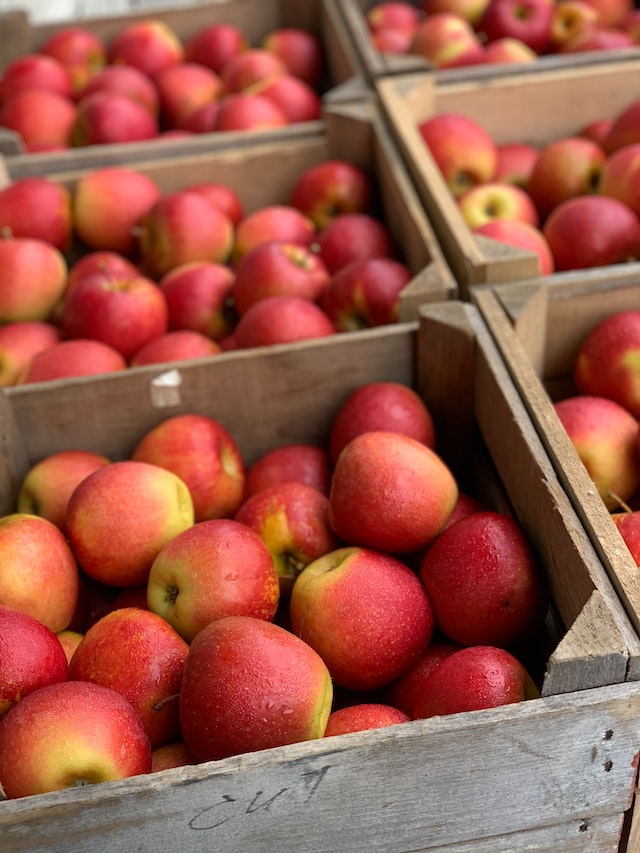
When asking about the quantity of something, English speakers have two options: "how many" and "how much."
Both phrases are used to ask about the amount of something, but there is a...
'Mucous' or 'Mucus'?

"Mucous" and "mucus" are two words that are often used to describe a thick, slippery substance produced by the body, but there is a difference in their usage.
"Mucus" is a noun that...
'Rational' or 'Rationale'?

Rational and rationale are two words that are often confused in the English language due to their similar spelling and related meanings. However, they have distinct definitions and connotations th...
'Recognise' or 'Recognize'?

Recognise and recognize are two spellings of the same word that have the same meaning. Both spellings are used in English, but the use of each varies depending on the region or country.
...'Peace of Mind' or 'Piece of Mind'?

When it comes to the phrases "peace of mind" and "piece of mind," there is often confusion about which one to use and what each phrase actually means. Unfortunately, "piece of mind" is not a recog...
'A Year' or 'An Year'?
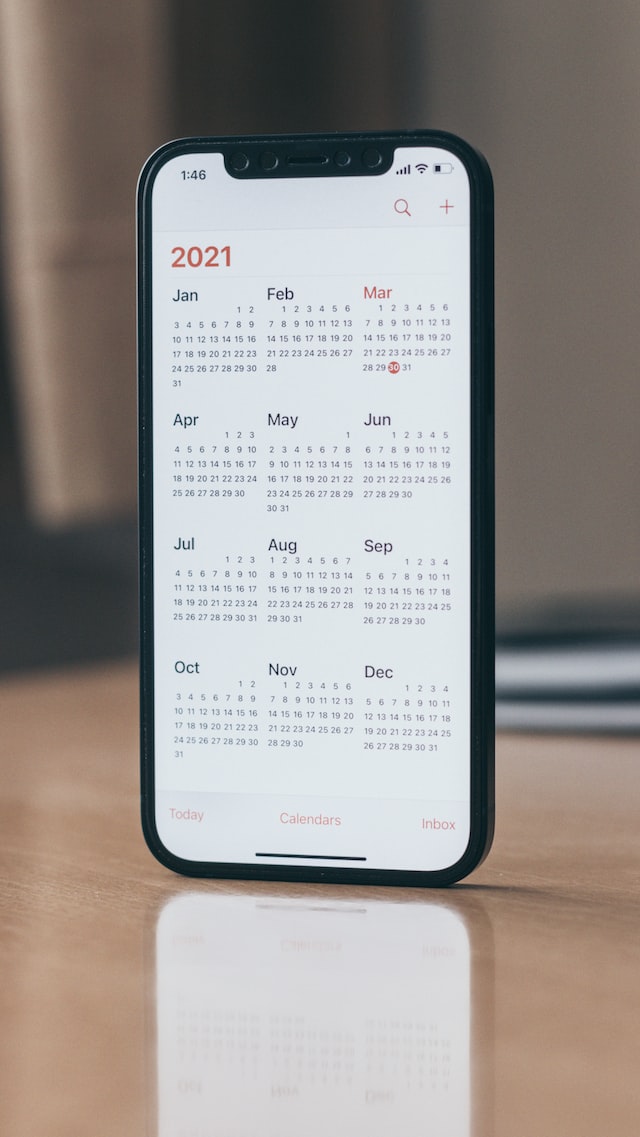
The use of "a" and "an" in the English language is dependent on the following word's starting letter. For instance, "an" is used before a vowel sound, and "a" is used before a consonant sound.
...'Aware Of' or 'Aware Off'?

"Aware of" and "aware off" are two similar-sounding phrases that can often be confused in writing.
The correct phrase is "aware of," and it means to have knowledge or understanding ...
'Arctic' or 'Artic'?

The words "Arctic" and "artic" are often confused in the English language.
The confusion may arise from the fact that "Arctic" is often mispronounced as "artic."
<...'Acclamation' or 'Acclimation'?

Acclimation and acclamation are two words that are often confused due to their similar spellings and pronunciations, but they have very different meanings.
Acclimation refers to the...
'Pet' or 'Petted'?

When it comes to the English language, even seemingly simple words can sometimes cause confusion. Two such words that often perplex many are 'Pet' and 'Petted.' While they may appear quite similar...
